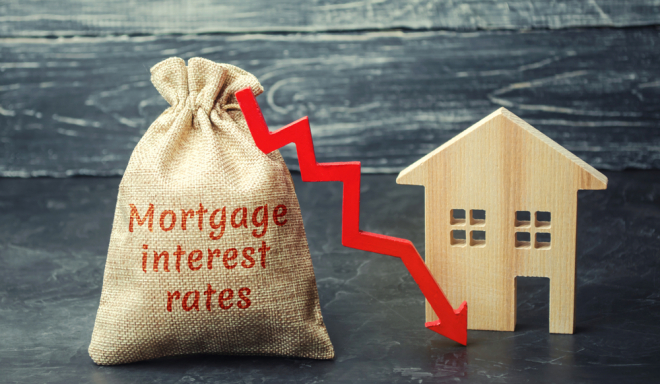
Getting the very lowest interest rate is usually top priority for most home loan seekers but mortgage rates can vary widely from day to day and year to year. They are influenced by international and domestic market changes as well as an individual borrower’s financial details and loan packages. In order to get the best rate, it is essential to understand all the factors that determine mortgage interest rates.
- The Federal Reserve and 10-year Treasury Bond Yield
The general range for mortgage rates at any particular time is heavily influenced by the world and U.S. financial markets. Rates are closely tied to the bond yields of 10-year U.S. Treasuries and somewhat tied to the Federal Reserve’s federal funds rate. When investors are feeling nervous, they put more money into the security of bonds, pushing yields up, which usually bring mortgage rates down. When global and domestic markets are thriving, investors often put their money in places with more risks, decreasing demand for bonds. Bond yields then fall, and mortgage rates usually increase. Similarly, the federal funds rate is adjusted to meet the needs of the economy. When the Fed’s rate declines, mortgage rates often see a similar movement. While you personally have no control over these factors, understanding how the economy affects rates will help you know why rates are in a certain range.
- Geographical Location
Interest rates vary regionally in the U.S. for a variety of reasons. Specific state laws and regulations can make mortgages more or less expensive. Also, highly populated areas tend to have more lenders competing for business, often leading to lower rates than areas with smaller populations. Rates are also determined by the financial stability of an area. When the average credit score is lower, rates will often be higher to compensate for the risk.
- Credit Score
Individual credit scores play a huge part in your exact mortgage interest rate. Lenders use your credit score to judge how likely you are to repay the loan. You can improve your odds for a lower rate by checking your credit score, correcting any mistakes on your file and improving your credit habits if necessary before you apply for a loan. The higher your credit score, the lower your rate will be.
- Down Payment
A large down payment lowers the lender’s risk because it means you have more invested in the property and will probably work harder to hold on to that investment. Your interest rate will typically be lower the higher your down payment is.
- Mortgage Loan Type
Different loan types involve different amounts of risk and are priced accordingly. There are conventional, conforming, jumbo, FHA, VA and USDA mortgage loans. There are also loans with fixed-interest rates and there are adjustable-rate mortgages. Each comes with unique terms and the interest rates will vary between them.
- Loan Term
How long your mortgage lasts also influences your interest rate. The longer the mortgage, the more risk involved and the higher the interest rate. The typical loan term is 30 years, but mortgages are also frequently made for 15 years or even 10.
- Points
If you decide to pay some origination points, you can buy down your interest rate from the going market rate. One point is equal to 1% of the loan total. If you plan to stay in the home for a long period of time, spending some upfront money on points can make sense in order to lower your interest rate and save tens of thousands over the course of your mortgage.
Call us today at 206-947-0615 for a Free Mortgage Rate Quote.

